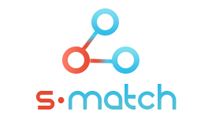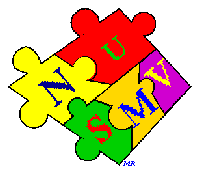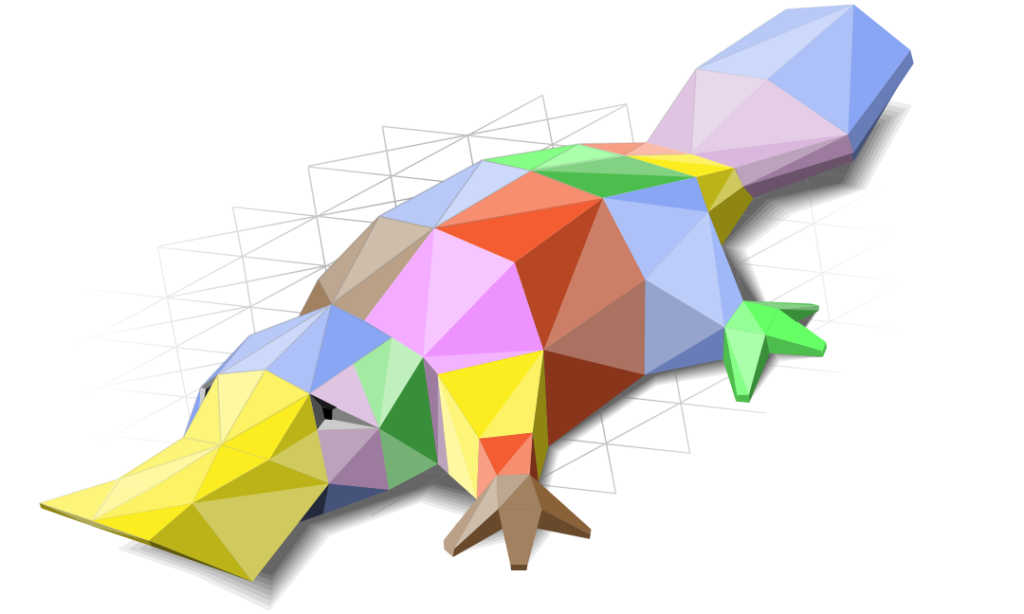DIVERSICON
The open-source Diversicon Framework helps application developers in finding, integrating, and accessing lexico-semantic domain knowledge for domain-specific natural . . .
DIVERSICON
The Diversicon Framework for Pluggable Lexical Domain Knowledge
The open-source Diversicon Framework helps application developers in finding, integrating, and accessing lexico-semantic domain knowledge
for domain-specific natural language understanding tasks. Such a framework is made necessary by the heterogeneity of specialised lexical
and linguistic background knowledge resources (terminologies, grammars, corpora, or lexical databases), which is a major obstacle to
their efficient use. The major components of the framework are a common API and domain knowledge model that allow applications to
retrieve domain knowledge through a unified interface from a diversity of resource types, implementations of the API for some of
the most commonly used online and offline knowledge sources, a domain-aware knowledge base that helps integrate static lexico-semantic
resources, and an online catalogue that either hosts or links to existing resources from multiple domains. Support for Diversicon is
already integrated into two of the most popular ontology matcher applications.
Start date: 2016
End date: 2019
License type: Apache 2.0
Institution that maintains them at the moment: KnowDive
Acess the page DIVERSICON
Access the repository here

SMARTCOLLECTIVES
SmartCollectives provides you an open source toolkit for easilybuilding applications able to access combined resources provided by teams of diverse people. Developed by the . . .
SMARTCOLLECTIVES
SmartSociety - SmartCollectives
SmartCollectives provides you an open source toolkit for easilybuilding applications able to access combined resources provided by teams
of diverse people. Developed by the SmartSociety project (http://smart-society-project.eu/)
The smart society programming framework is a set of Java libraries implementing the innovative programming model for Hybrid Diversity-Aware Collective
Adaptive Systems (HDA-CAS), developed within the Work Package 7 (WP7) of the EU-funded FP7 SmartSociety project. The outcome of the project is a (tool)set
of software components that are interoperable and can be used together to build a HDA-CAS platform. More details on
the toolset can be found on http://smartcollectives.com/.
In short, these tools allow developing platforms to manage collectives (teams) of hybrid peers (software services, humans, sensors). However, coupling
and getting these components to work together may not be a simple task. The role of the programming framework is to ease this task, and offer a more
human-friendly interface for using the components together and integrating the power of the SmartSociety components right into their Java programs.
Start date: January 2013
End date: December 2016
License type: Open
Institution that maintains them at the moment: U-Hopper
Access the repository page: SMARTCOLLECTIVES

SCROLL
Natural language text is pervasive in structured data sets—relational database tables, spreadsheets, XML documents, RDF graphs, etc.—requiring data processing applications to . . .
SCROLL
Semantic Cross-Lingual Label Parser
Natural language text is pervasive in structured data sets—relational database tables, spreadsheets, XML documents, RDF graphs,
etc.—requiring data processing applications to possess some level of natural language understanding capability. While these formal
or semi-formal data models were designed to ease the processing of data by machines, they still tend to contain a large amount of
informal text expressed in natural language within schema elements, data values, and metadata. Extraction of meaning from such text
is a key step in solving well-known tasks such as data analysis, data integration, linguistic and semantic processing, or information retrieval.
This, however, is made difficult by the heterogeneity of languages, domains, syntax, orthography, or naming conventions, all typical
of natural language text. To tackle these issues, SCROLL provides cross-lingual and cross-domain natural language processing tailored
to the specific needs of structured data. The fundamental idea behind the platform is that linguistic processing is shared across languages
and across application domains. This is achieved by building linguistic resources and tools collaboratively, using a shared infrastructure.
Start date: 2012
End date: Ongoing
License type:
Institution that maintains them at the moment: KnowDive
Access the page SCROLL

SMATCH
S-Match is a semantic matching framework, which provides several semantic ontology matching algorithms and facilities for developing new ones. S-Match was heavily used inside . . .
SMATCH
SMATCH Semantic Matching Framework
S-Match is a semantic matching framework, which provides several semantic ontology matching algorithms and facilities for developing new ones.
S-Match was heavily used inside the KnowDive group for several years to conduct experiments in semantic matching. These experiments included
cross-lingual ontology matching, matching of data schemas, as well as domain-specific matching algorithms. The goal of this project is to
make S-Match available for the community by releasing it under a permissive open source license.
Start date: 2007
End date: 2017
License type: LGPL http://www.gnu.org/copyleft/lesser.html
Institution that maintains them at the moment: KnowDive, Aliaksandr Autayeu
Acess the page: Semantic Matching Framework
Access the repository here

NUSMV
NuSMV is a reimplementation and extension of SMV, the first model checker based on BDDs. NuSMV has been designed to be an open architecture for model checking, which can . . .
NUSMV
NuSMV is a symbolic model checker developed as a joint project between:
· The Embedded Systems Unit in the
Center for Information Technology at FBK-IRST
· The Model Checking group at
Carnegie Mellon University , the Mechanized Reasoning Group at
University of Genova
· The Mechanized Reasoning Group (now KnowDive Group) at University of Trento.
NuSMV is a reimplementation and extension of SMV,
the first model checker based on BDDs. NuSMV has been designed to be an open architecture for model checking,
which can be reliably used for the verification of industrial designs, as a core for custom verification tools, as a testbed for formal verification techniques,
and applied to other research areas.
NuSMV2, combines BDD-based model checking component that exploits the CUDD library developed by Fabio Somenzi at Colorado University and SAT-based model checking
component that includes an RBC-based Bounded Model Checker, which can be connected to the Minisat SAT Solver and/or to the
ZChaff SAT Solver. The University of
Genova has contributed SIM, a state-of-the-art SAT solver used until version 2.5.0, and the RBC package use in the Bounded Model Checking algorithms.
Start date: 1996
End date: Ongoing
Institution that maintains them at the moment: Fondazione Bruno Kessler (FBK)
Access the page: http://nusmv.fbk.eu/

GETFOL
The GETFOL system is an experimental program for embedding real world knowledge into data structures that can be manipulated by computers. The current implementation . . .
GETFOL
The GETFOL system is an experimental program for embedding real world knowledge into data structures that can be manipulated by computers.
The current implementation of GETFOL runs on top of a re-implementation of the FOL system, originally designed and developed by Richard Weyhrauch at Stanford.
Dozens of people, over almost two decades, worked to its implementation and used it to formalize and solve problems of logic and artificial intelligence.
The GETFOL distribution package is made available for use by anyone interested in building autonomous agents or using logic based representation theory for problem solving.
The GETFOL distribution package contains source files and documentation.
The system require Common Lisp to run. It has been tested on Lucid [version 3.0.0] and Austin Kyoto Common Lisp [Version(1.623)] under UNIX operating system [SunOS 4.1.1].
This guide gives an overview of the GETFOL distribution package: it explains how to obtain the package,
describes its contents, and the procedures for installing and running GETFOL.
Start date: 1985
End date: 1991
License type:
Institution that maintains them at the moment: None
Access the repository page: Repository GETFOL
